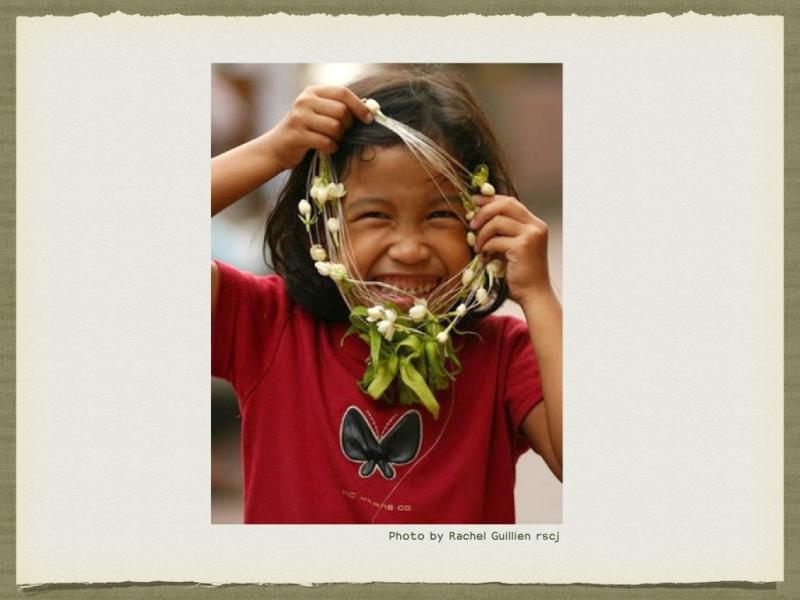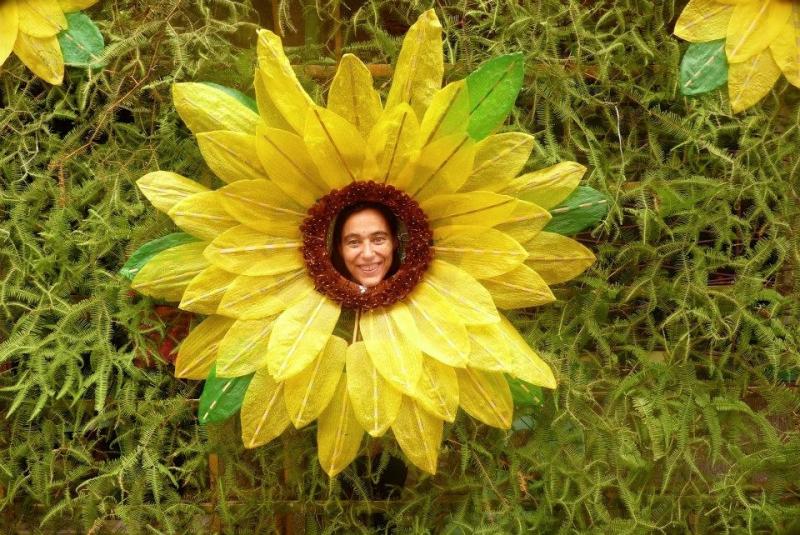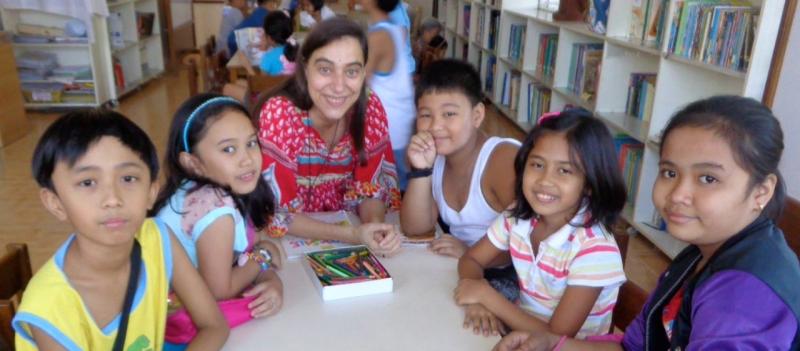The action in the Indonesian film “Laskar Pelangi” takes place in a small, remote village on the island of Sumatra. In the shade of a palm tree, a few pretty young girls dressed in rags held together by the thread of dignity, have their eyes riveted on their teacher. This 70-year old Muslim, there in order to lavish upon them some words of wisdom and to initiate them into the Koran, has just scored a bull’s eye! As far as one can see, he has given his life for these children, and, in response to their great need, he seeks to pour out excellence upon them:
“Do not ask yourselves what you can receive from life but rather what you can give.”
This hymn of love has just touched the hearts of each of the children! And here they are, propelled majestically into the adventure of existence, ready to reach for the sky in this unique human mission: to give their lives.
This piece of film sums up in itself the international experience that I have lived, mostly in the Philippines and also in Indonesia: to be the privileged witness to these lives that are given and which resonate with the vibrant call to which the Son of Man clearly summons us: “I have come to serve and to give my life” (Mark 10:25), “go …”
How do my sisters and those whom they meet, live this mission, and how does Christ teach us to put music to this Paschal symphony?
“Commitment, real commitment, arises out of love for men and women, for children and for old people […] for faces and for names that fill our hearts. These grains of hope that are patiently sown on the forgotten margins of the planet, these surges of tenderness that struggle to survive amidst the darkness of exclusion, will lead to the growth of tall trees, dense forests of hope that will give oxygen to the world” (Pope Francis, speech given to the "popular movements" in Santa Cruz, Bolivia in July 2015).
These ideas from Pope Francis echo the visceral bonds that our sisters have forged with those who are around them. From the slums of Jakarta, to the farm in Samar, via the school in Montalban or the community in Ormoc and in many other places, I marvelled at their commitment. If it is a question of forgetting oneself, it is a case of their whole being that is handed over: moments of compassion for a family that is in trouble or for a sick sister, sharing knowledge in order to create opportunities for growth, ……….. For the young sisters in formation, as for the agricultural worker or for the new teacher, methods are proposed which aim to bring out the best in them. In their way of loving, my sisters have hopes for the other person.
From all of this, what do those to whom we are sent, reveal to us?
“You, the most humble, …. you can and do achieve a lot. I dare to say to you that the future of humanity is, in great measure, in your hands, in your capacity for organising yourselves and for proposing creative alternatives, in the daily search for the three L’s: labour, lodging and land, and also in your participation as protagonists in the great national, regional and world processes for change. Do not under-estimate yourselves! You are the sowers of change. You live each day drenched to the skin by the human tempest” (Pope Francis, Bolivia).
In a region that is so exposed to the typhoons from the ocean and from the economy at two different speeds, I have first of all been captivated by the resilience of this Filipino people. They retain the courage to rebuild, to go through tragic losses of their loved ones, to look for wise solutions to penury, to face up to the storms of immigration in order to help their families, and, in spite of the outcome, to cherish the unbelievable wealth of a generous and disconcerting hospitality. They teach us so many skills because they bear the stamp of a gift and of a living faith. It then becomes a burning need to listen to the voices of those who have no voice, not in order to take pleasure in some act of charity but because they are strongly versed in a beautiful human experience. In the darkest night they have learned to give their lives whilst remaining turned towards the light.
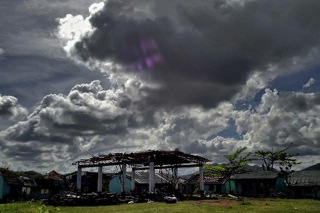
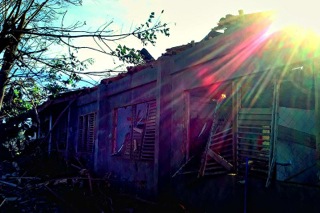
Photos by Jose de Luna
If all these lives are given in such a beautiful way, it is because Jesus has shown us the way.
Like the birth process, incarnation unveils a moment of “going beyond oneself”. Here is Jesus “launched into the world”, projected into the midst of our humanity. His coming speaks of the unexpected aspect of a God who humbles himself: Jesus will not rest until he comes to the humblest part of the society that surrounds him, to the depths of hearts that have been broken, to the epicentre of wounds, to the deepest recesses of our errors and to the furthest limits of our fears or our prejudices. His manner of giving himself is first of all by bending down, until he is kneeling in order to reach our lowest extremities. With the cloth of his tenderness he will then come to bandage, to clean, to anoint: “console, console my people” (Isaiah 40:1). How do we take part in this mission with this same humility?
And when his gesture makes use of his liberating force, it is marked by the sign of gratuity: Jesus has no stranglehold over others. Most of the people who are met and healed continue on their way. However, he is also the one who allows himself to be closely linked to the other person. After Mother Nature, who is the muse for all his parables, it is the smallest ones who become his source of inspiration. He has detected the beauty of their hearts and the fire of their faith. From the woman with the wrinkled features, making her offering from the poverty of her widowhood, to the Syro-Phoenecian woman whose few crumbs have such a powerful effect on his mission, there are many such encounters that guide him. His entrails are moved by compassion, his tears flow for each person, he has resolved to love “until the end” (John 13: 1-15).
He enters into his mission through the narrow door of fragility, or rather that of consenting to a radical vulnerability. As a new-born babe placed in the hands of others, he will be the son of a carpenter who has no home. From cradle to cross there is no barrier erected between him and others. Without anywhere to lay his head, he is the nomad who is begging the hospitality of our hearts. The tone of his voice is that of delicacy and respect for our freedom: “what would you like me to do for you?” (Matthew 20:21) So close and yet so distant. He gives his life, but no-one takes it from him. His torturers make his body the receptacle of injuries, stains, ignominies, but his spirit rests in the hands of the Father. And when he gives us his body and his blood, he opens us to universal communion.
“My Father”, “my friends”, “my joy”: all that he possessed has been offered to us with pleasure and with gratitude. Joy and recognition become our trademark. Not a booming and ephemeral joy, but a crystal-clear joy that gives us the courage to fight against injustice, suffering and betrayal, and which communicates the desire to follow him: a joy that gives us the strength to sweep away our shortcomings in order to build friendship with everyone. All has been accomplished and we have now inherited a Kingdom in which unity will come about by the gift of our lives.


Photos by Jose de Luna
Now the gift of his life is not the price of the Paschal mystery because it is its inspiration. So, to what lack of hope, what fears, what false image of myself, what vain conquests, do I have to die? From what do I need to detach myself? In the midst of adversity, to what I am being called to consent? The route map for our journey is light: “with the strength that is within you, set forth” (Judges 6:14). Whether our journeys lead us through trials by fire or the lack of a gentle light, his Spirit is already tracing the outlines of a new life, resurrected by the gift of His life. So, will I know how to sort out my desires in order to express their essence: “just let me love you.” Could this be the heart of our mission?
Rachel Guillien rscj

